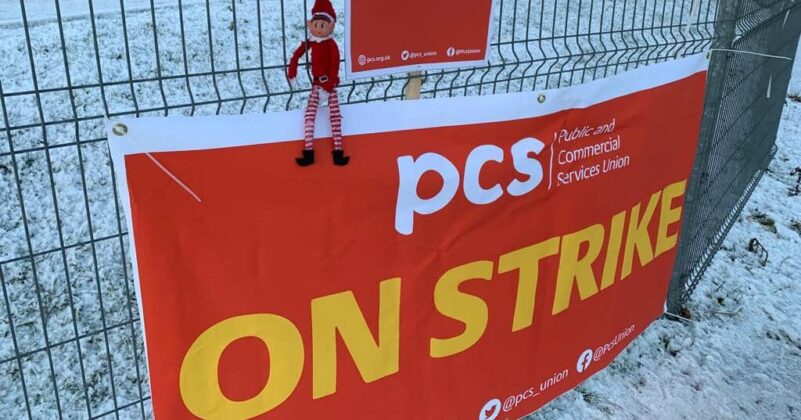

By Rebecca Anderson
UNLIKE OTHER public sector workers, the government’s 2022/23 pay offer to civil servants has not been improved by the wave of industrial action. Despite double-digit inflation, the government has refused to negotiate anything above the 2–3% pay rise that has already been imposed, not even offering the derisory one-off payments recently rejected by teachers and nurses. As ever, they wish to set an example with their direct employees, to encourage other departments to hold down wages.
For the past few months, the government has only been willing to discuss pay for 2023/24, but towards the end of April the Cabinet Office announced a miserly pay offer of 4.5–5%. Inflation is not expected to fall to this level until at least the end of the year, but even if it falls tomorrow, the offer fails to address the 8% drop in real wages last year, which workers will never recoup without above-inflation raises.
Anticipating that they, too, would be subjected to such pay restraint, the senior civil service union, FDA, immediately announced a ballot for industrial action, for the first time in 40 years.
Unions representing the main body of the civil service—PCS and Prospect—have already been engaged in a campaign of industrial action. PCS, by far the largest civil service union, won its ballot nearly six months ago and is in the process of re-balloting. However, in the 6 months of the current ballot period, the union has only called three days of all-out strike action, spread months apart.
The all-out strikes have been supplemented by the targeted actions of smaller groups of workers such as Border Force, DVLA and the Passport Office. Strike pay for these longer strikes has been raised through an all-member levy.
Leadership challenged
As the pay dispute drags on with no discernible impact on either the 2022/23 or 2023/24 pay offers, challenges have been raised about the effectiveness of the union’s strategy. The annual election of the union’s National Executive Committee is underway and the existing leadership is facing a challenge from a united slate of the Independent Left and Broad Left Network, whose platform focuses on escalating the strikes and democratising the union.
Though their proposal for escalation is somewhat vague – the slate wants to continue with targeted action supported by all-out strikes and overtime bans – the thrust of their proposal is to hit the government harder in order to win. PCS members should vote for this slate, as the alternative is more of the same.
On democratisation, they promise greater transparency of negotiations, and for full-time officials to be elected and paid the average wage of the union membership. These would be significant steps forward.
Those who want democratisation, including membership control of the pay dispute and of the union itself, should use the opportunity of the NEC elections not just to organise to elect a more radical leadership, but to also build a network of union activists that can hold the incoming leadership to account. In the UCU and RCN we have seen such rank and file networks developing in response to strikes being called off and terrible pay deals being endorsed, and we need to build something similar in PCS.